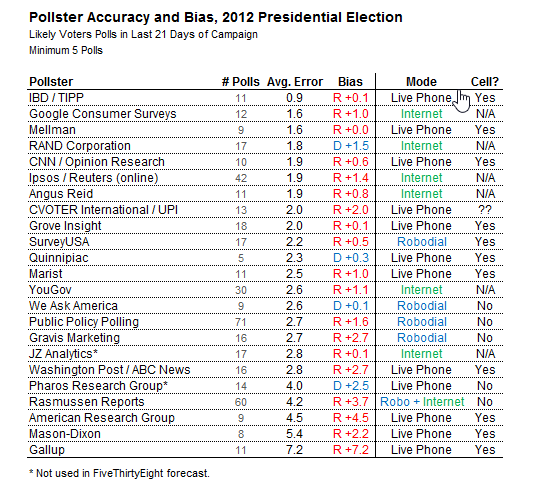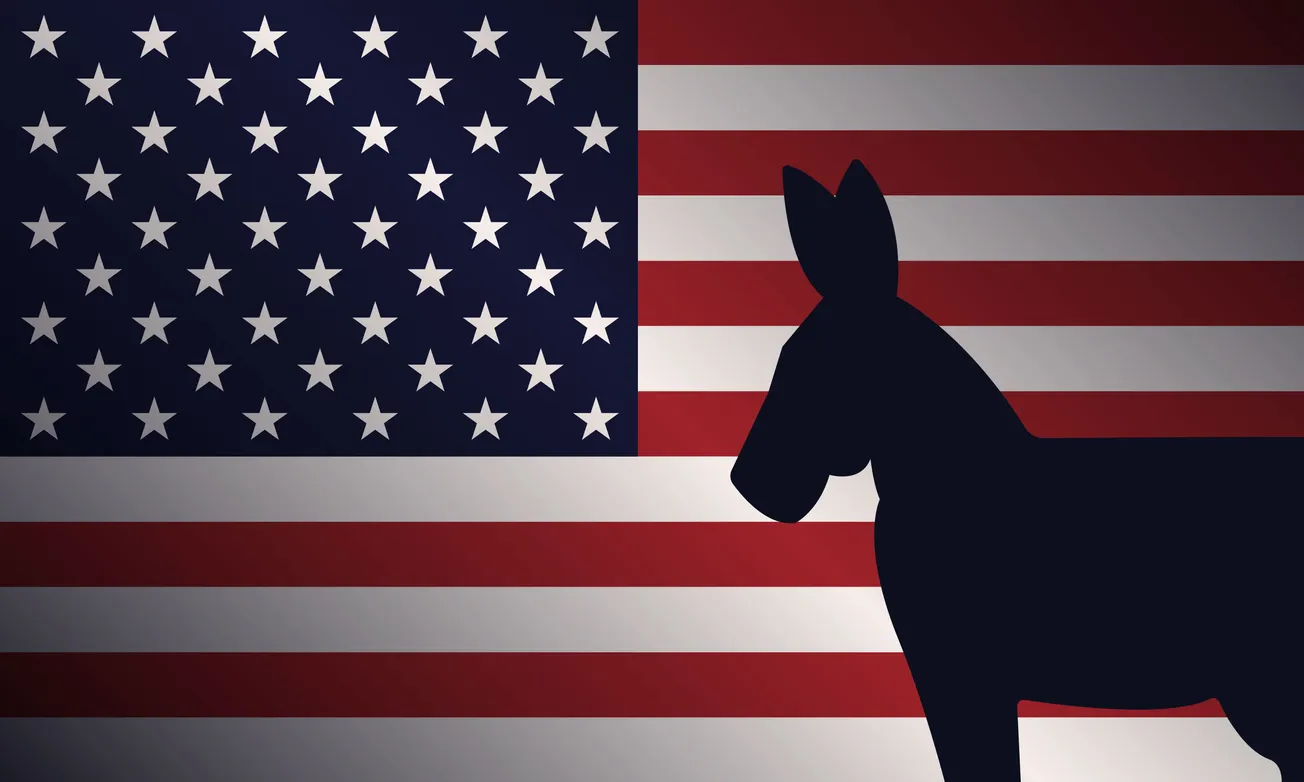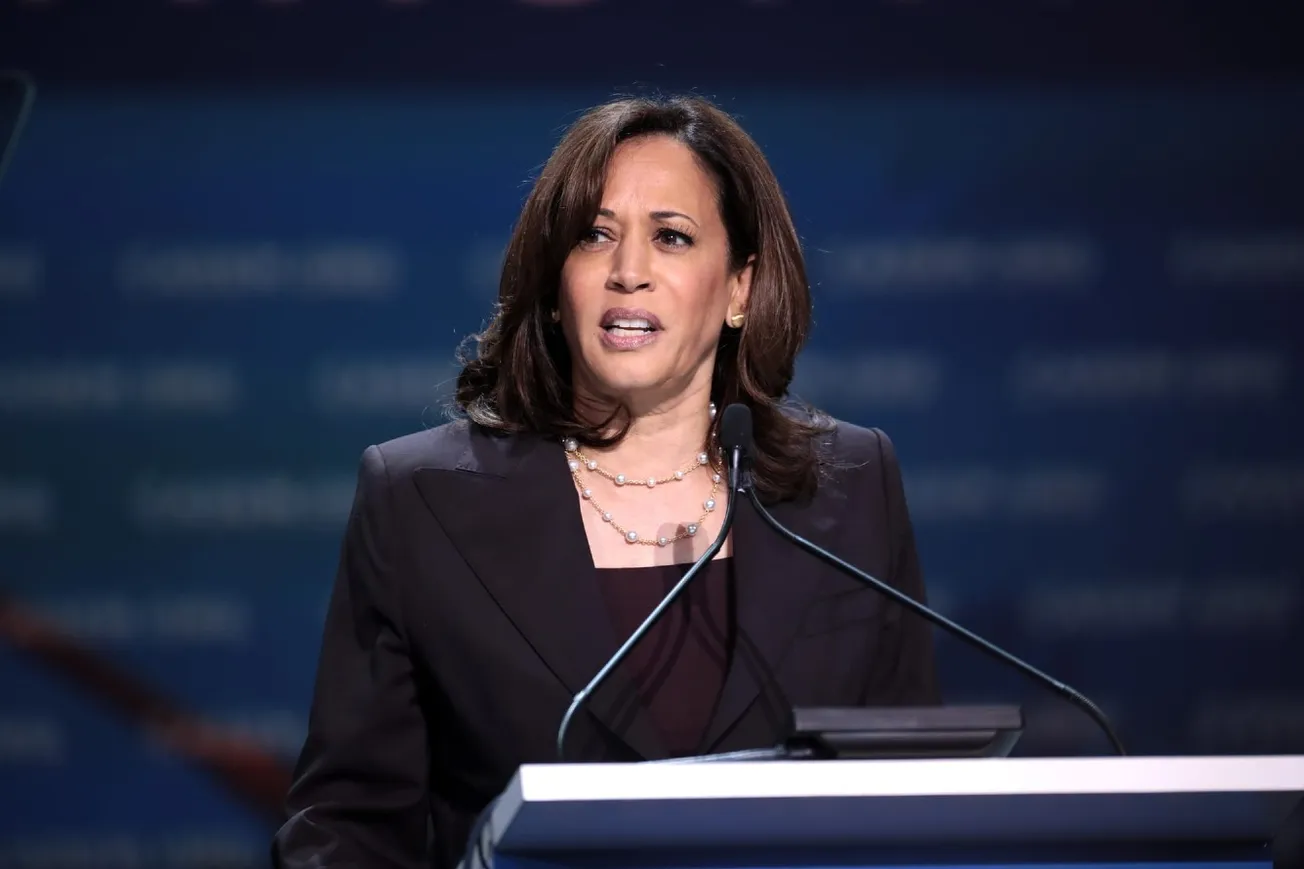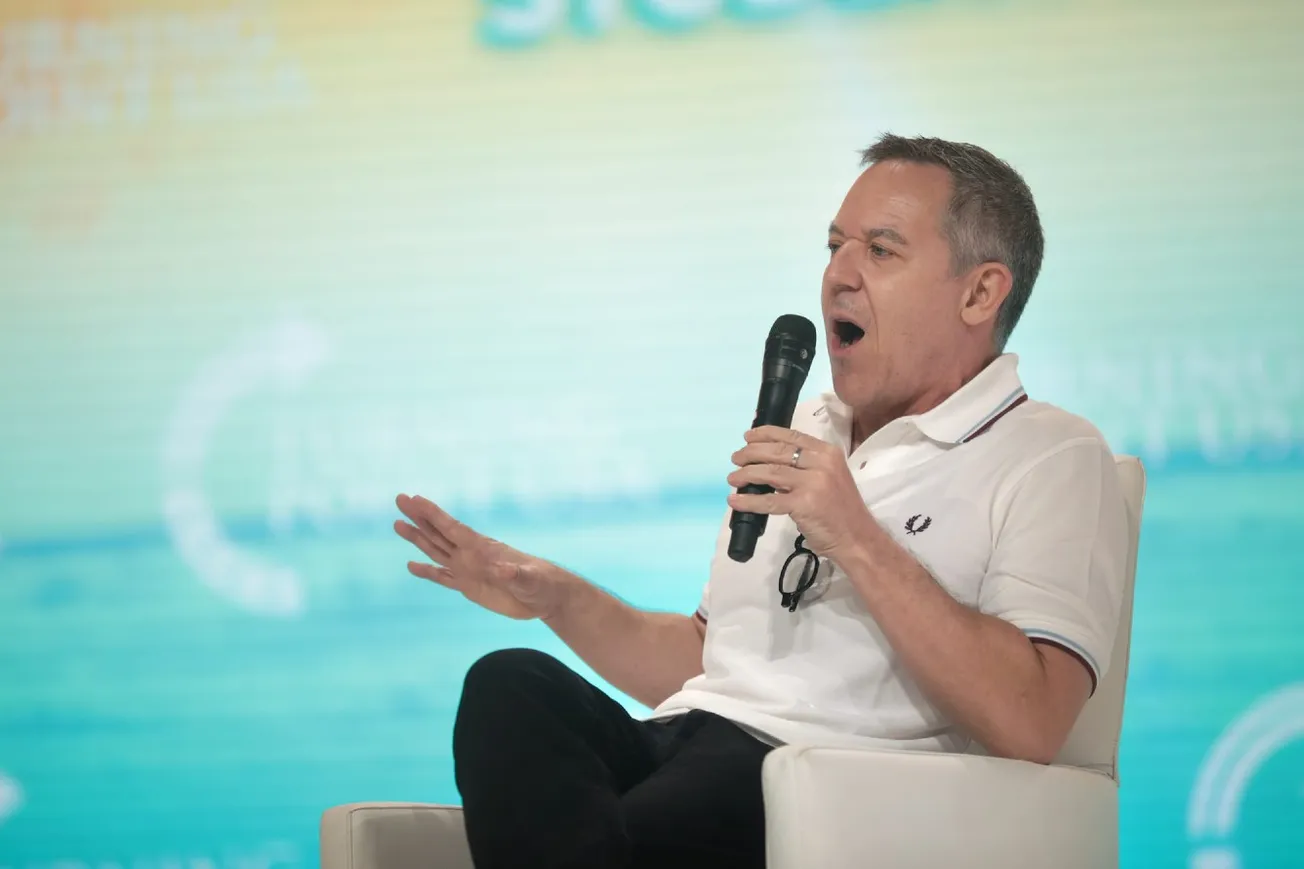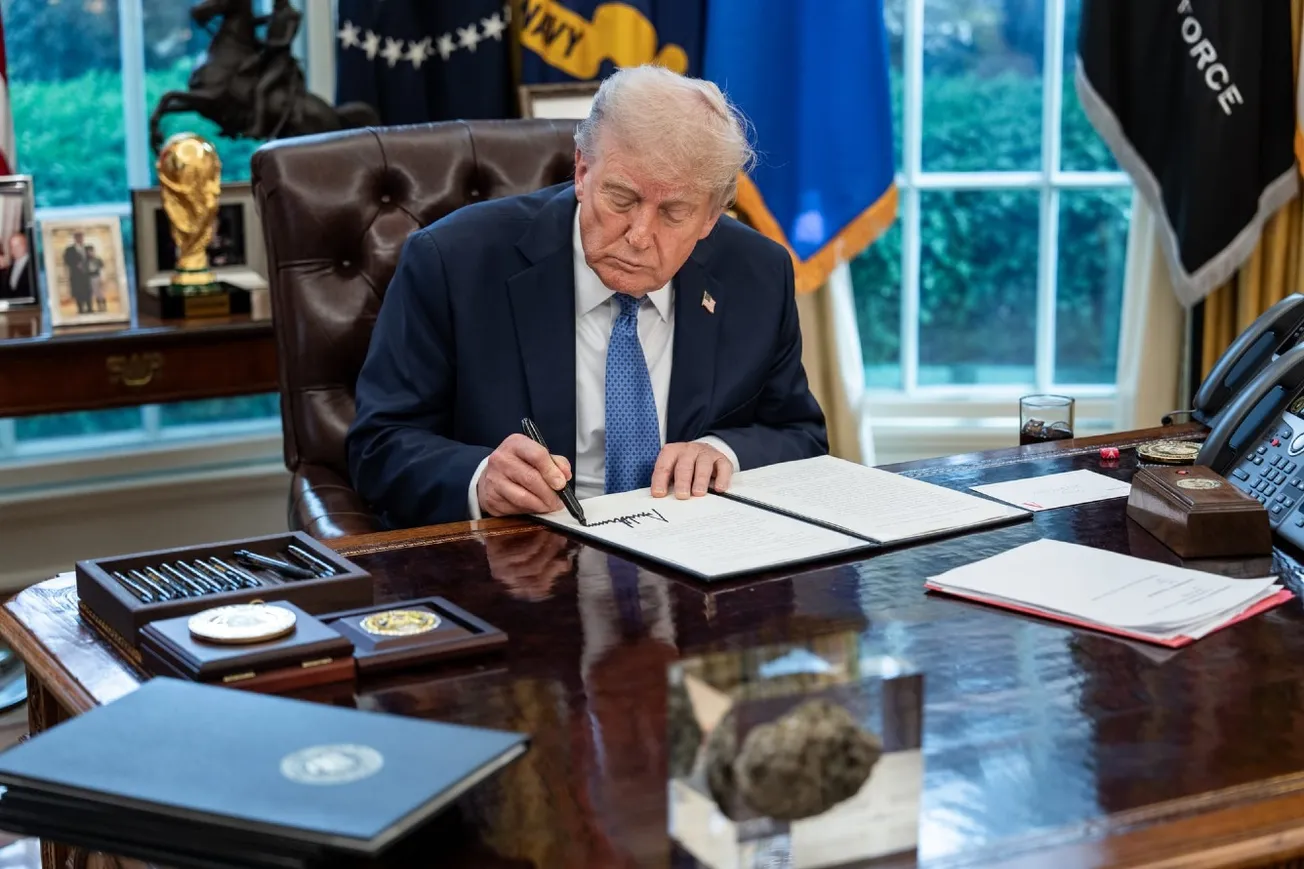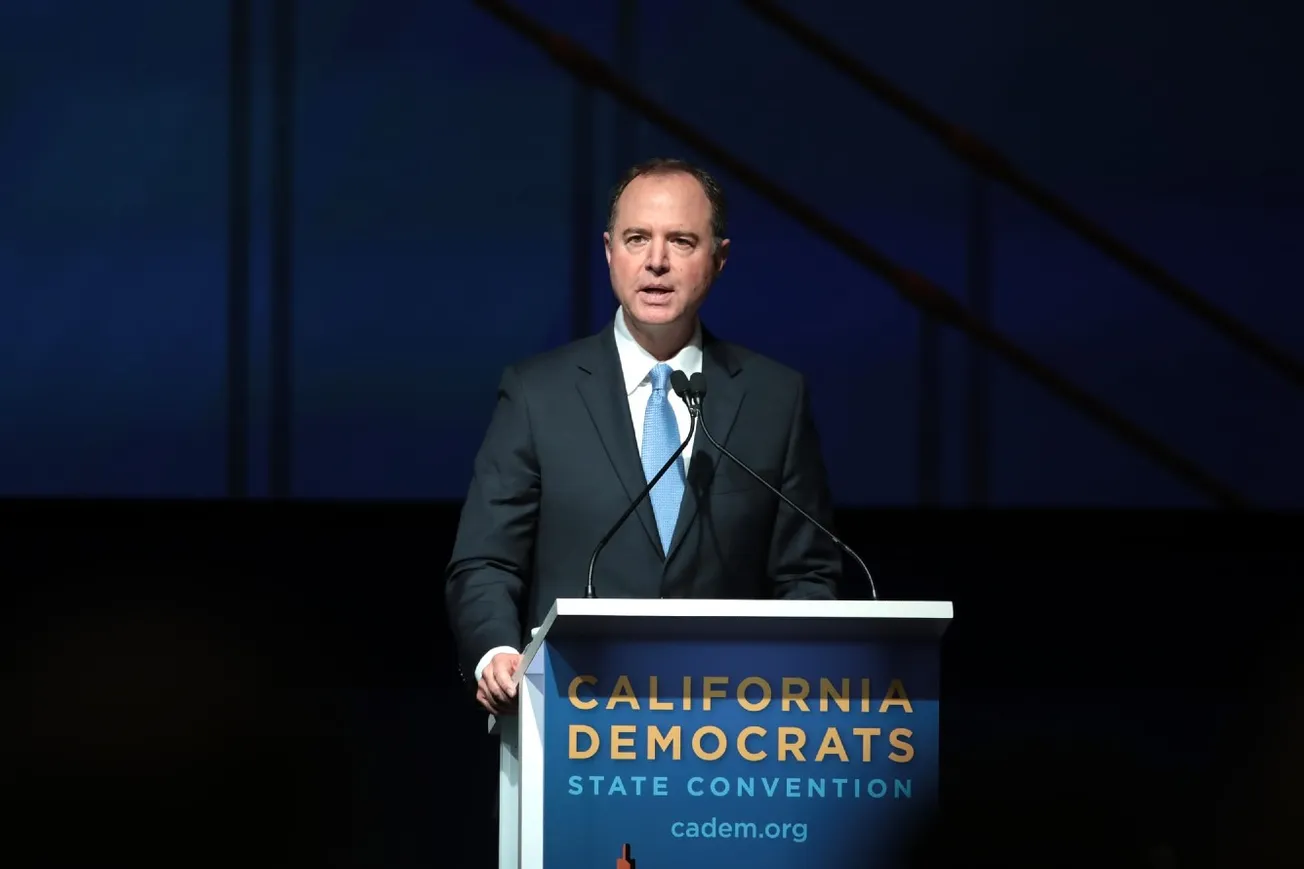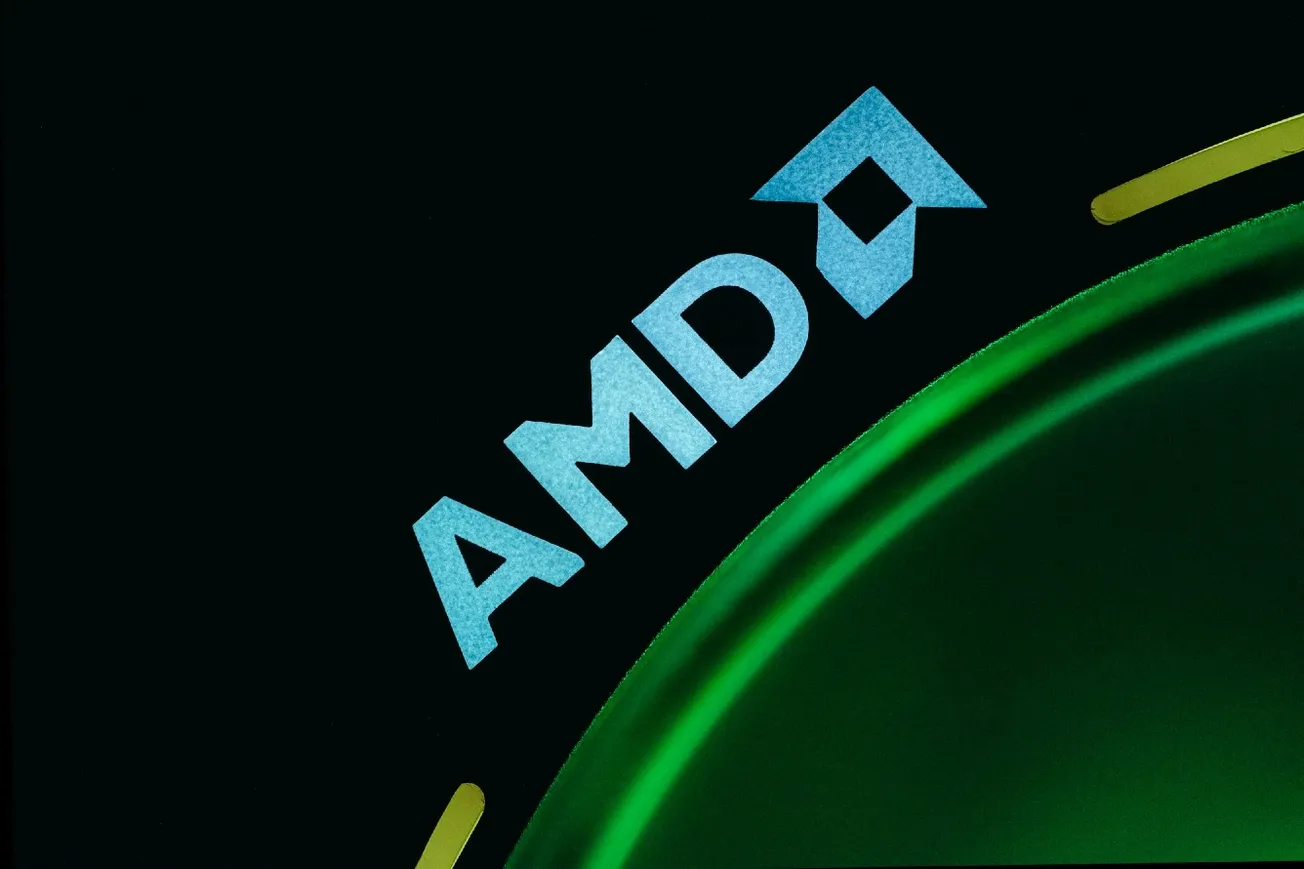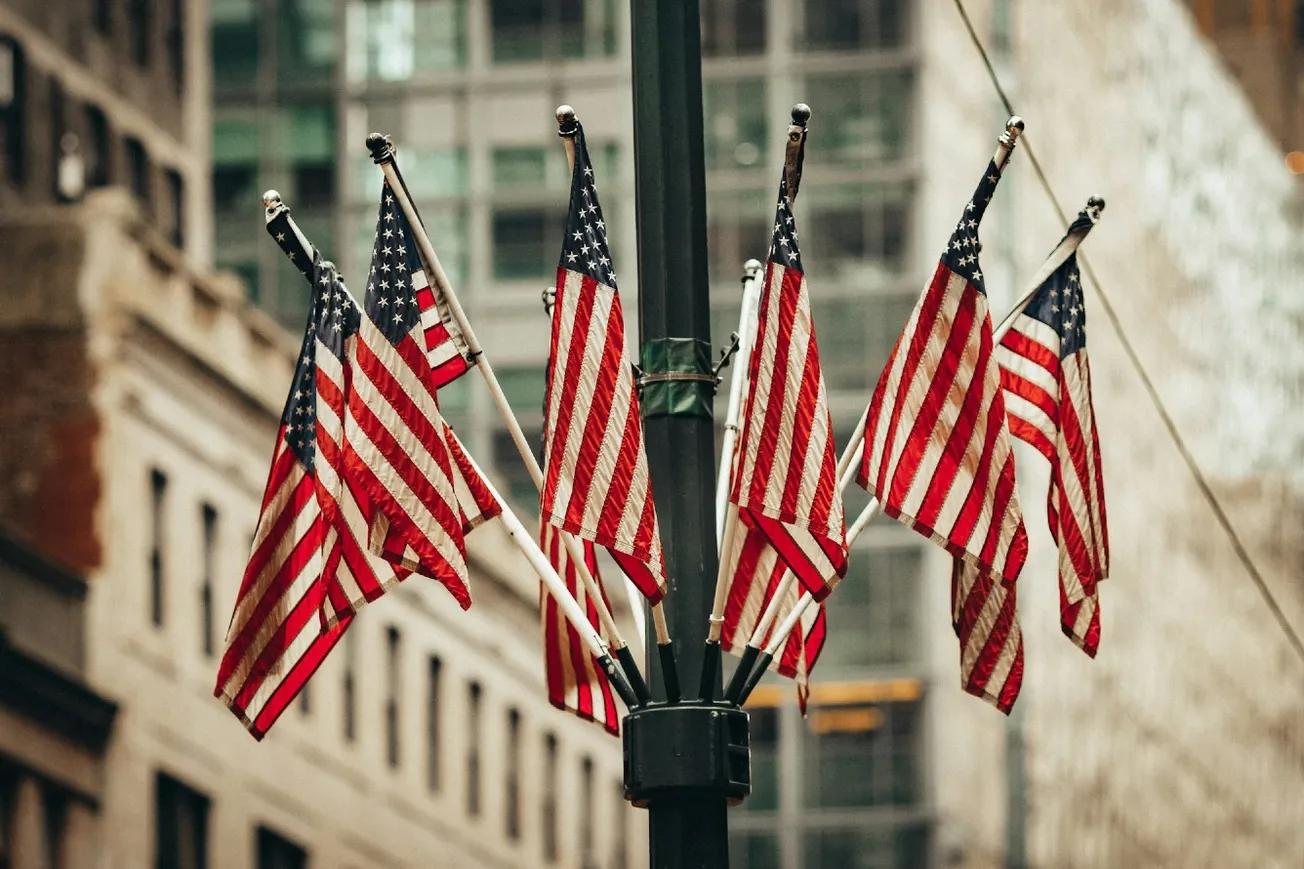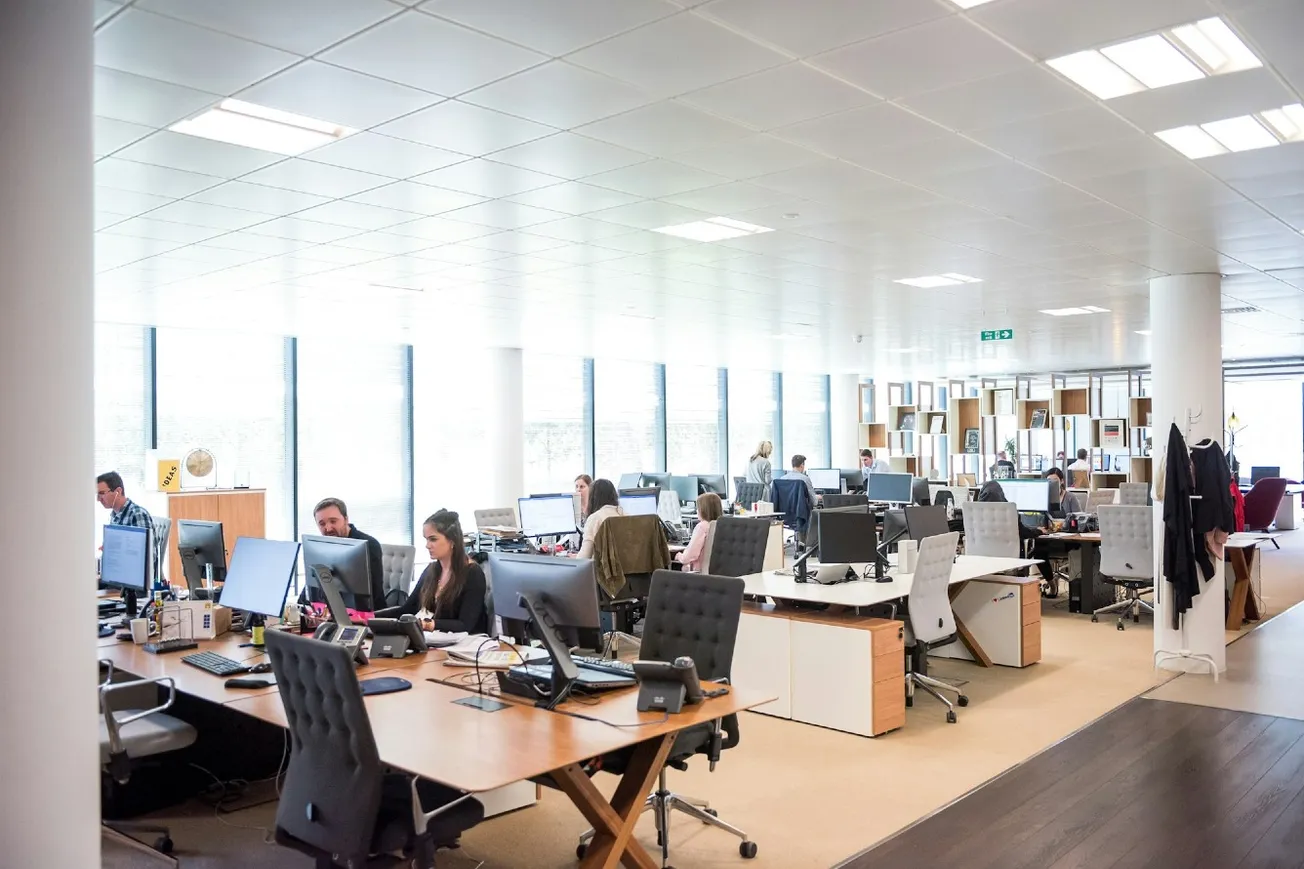Much of the noise coming from the debate between Donald Trump and Kamala Harris last week had to do with a media-driven narrative that Harris “won.” Maybe so. In initial polls after the debate, Harris padded her lead. But will the debate win be enough? Especially for the Democrats' own rank-and-file voters who believe the party used an undemocratic method to select its nominee.
September’s I&I/TIPP Poll suggests the answer is yes. Start with the fact that the Real Clear Politics polling average puts Harris up just 1.7 percentage points nationally, and a sliver-thing 0.2 percentage points in key battleground states.
So Harris' "bounce" after her debate victory still puts Trump within most polls' margin of error. The coming weeks will tell.
Meanwhile, however, a troubling question has loomed over Harris’ candidacy since it was announced in late July: Was it fair or democratic to have a candidate who received no votes simply named by Democratic Party officials as the party’s standard-bearer? Would Democratic voters "get over it"?
For its September poll, taken from Aug. 28-30, I&I/TIPP asked voters “to what extent do you agree or disagree” with the following three statements. As a follow-up, I&I/TIPP asked the same questions again in a poll taken from Sept. 11-13. The questions follow:
- "The process the Democratic Party used to select Kamala Harris as its nominee was undemocratic."
- "The process the Democratic Party used to select its nominee for President did not yield the strongest candidate."
- "I lost significant faith in the Democratic Party because it did not disclose Biden's health issues during the primary process."
The response to the initial national online I&I/TIPP Poll of 1,386 registered voters, taken in the waning days of August, was somewhat surprising. That's especially true given the recent media portrayal of Democrats dutifully lining up and marching in lock-step behind their pre-anointed candidate.
Overall 50% of voters agreed either “strongly” (35%) or “somewhat” (15%) on question No. 1, that is whether the Democrats’ makeshift naming of Harris as the candidate was “undemocratic.”
That included one-third of Democrats (33% agree, 61% disagree) who felt the selection was undemocratic. For Republicans, it was 71% agree, 19% disagree, while independents had a plurality of 46% to 36%.
The debate didn't change much. Overall, 45% agreed that their party's selection process was undemocratic, while 39% disagreed.
But again, nearly a third of Democrats (27%) still feel Harris was picked in an undemocratic way, while 62% said she wasn't. For Republicans, it was 68% to 18%, and for independents, a plurality of 43% to 40%.
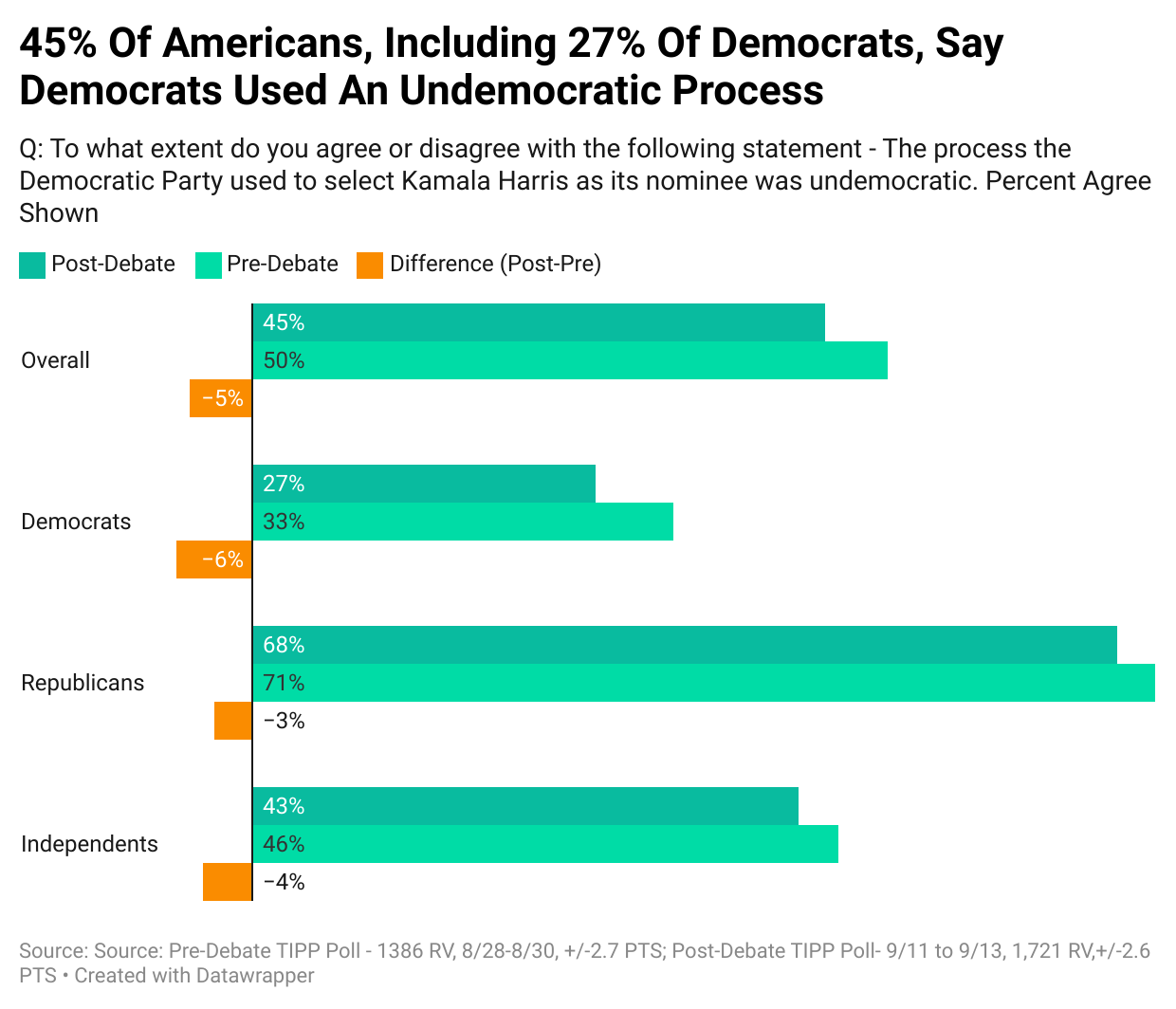
How about the second question about whether the Democrats' ad hoc decision to name Harris their candidate yielded "the strongest candidate."
In the late-August poll, 56% of all voters agreed that Harris wasn't the strongest person to run, while 33% disagreed. But 36% of Dems also agreed with that sentiment, while 57% disagreed. For Republicans, the comparable numbers were 77% to 14%, and for indie voters, a solid two-to-one majority of 55% to 28%.
When that question was asked again two weeks later, not much had changed.
The overall number dipped to 52% agree, 36% disagree. Once again nearly a third of Dems — 32% — said they agreed that the party had not named the strongest candidate available, while 57% disagreed.
That compares with 75%-to-14% for Republicans, and 50%-to-36% for independent/third party voters.
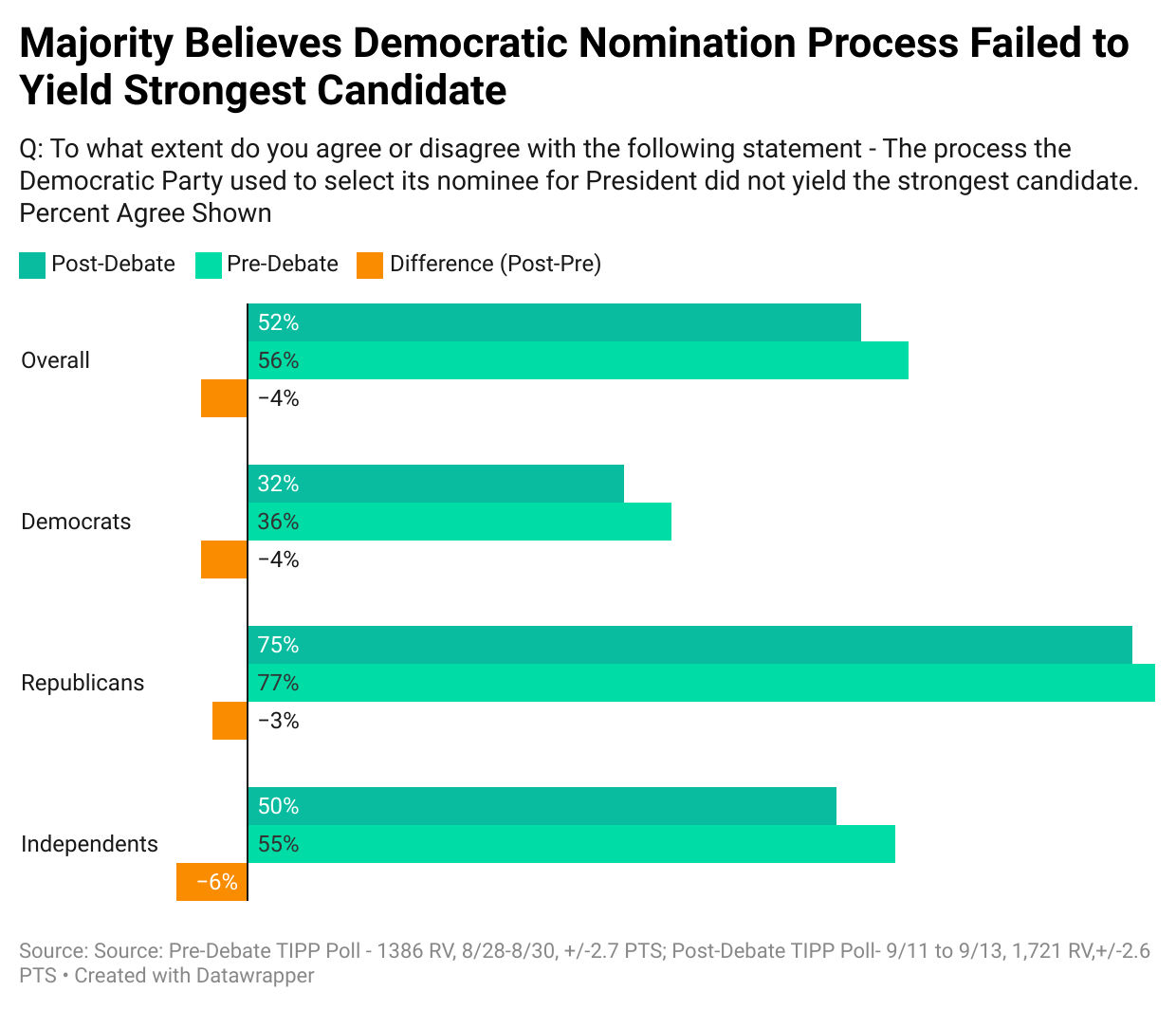
Finally, I&I/TIPP asked voters for another "agree/disagree" response: "I lost significant faith in the Democratic Party because it did not disclose Biden's health issues during the primary process."
Before the Trump-Harris debate, an overall 53% agreed, either "strongly" (37%) or "somewhat" (17%), while 40% disagreed strongly (27%) or somewhat (13%).
And again, nearly a third (32%) of Dems agreed, while 64% didn't. The comparable numbers for Dems (75% agree, 20% disagree) and independents (54% to 35%) were far higher.
After the debate, things changed a bit, but not much: 26% of Dems still said they had lost faith in their party, while 67% said they hadn't. For Republicans, 78% agree, 15% disagree. Indies came in at 49% agree to 38% disagree.
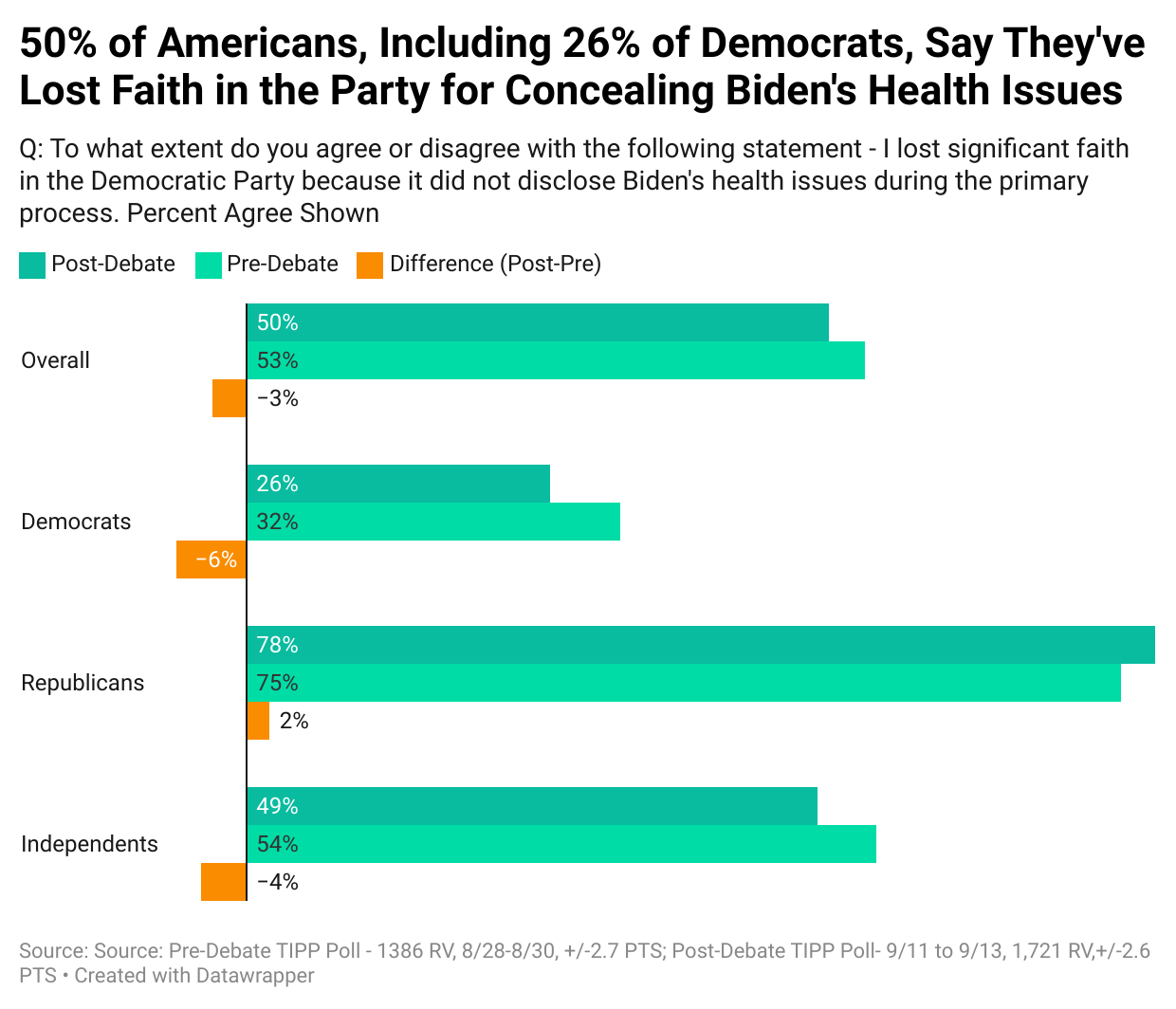
Remember, the initial poll was taken a bit more than a month after high-level party officials — including former President Barack Obama, former House Speaker Nancy Pelosi, and Senate Majority Leader Chuck Schumer — pressured a mentally-impaired President Joe Biden to end his campaign on July 21. The party then acted summarily to name Harris as candidate.
Harris steadily lost numbers in polls against Trump during that time, setting off alarms in official Democratic circles. While she got a boost from her Sept. 10 debate with Trump, it wasn't much of one: As noted above, the current Real Clear Politics national polling average has Harris up 1.7 percentage points over Trump, well within most polls' margins of error.
Trump still holds slim leads in three of seven battleground states (North Carolina, +0.4; Georgia +0.3; and Arizona +1.3), with what can only be called a dead-heat in vote-rich Pennsylvania (-0.1). Harris has a 1.2 point lead in Wisconsin, 0.7 in Michigan, and 1.2 in Nevada.
Overall, Harris has a slender 0.2 point edge in the battleground ballots.
While Democrats whooped after Harris won her debate over Trump, it might not yield what the Dems hoped for: Converts from the "undecided" voter camp.
"Reuters interviewed 10 people who were still unsure how they were going to vote in the Nov. 5 election before they watched the debate. Six said afterward they would now either vote for Trump or were leaning toward backing him. Three said they would now back Harris and one was still unsure how he would vote," the news service reported.
It added: "Although the sample size was small, the responses suggested Harris might need to provide more detailed policy proposals to win over voters who have yet to make up their minds."
As polling pundit Nate Silver remarked three days after the debate:
In fact, the underlying circumstances of the race are probably more favorable for Trump than in 2016 or 2020. If he were running a perfect campaign, he’d be a clear favorite. (Fortunately for Harris, he isn’t. Instead, my guess is that we’ll be roughly back to 50/50 once the post-debate polls are fully accounted for.)
A spate of polls since the debate have shown Harris with a lead over Trump of as much as five points. The I&I/TIPP Poll gives Harris a 47% to 43% edge in the survey conducted from Sept. 11-13. Another 6% were "not sure."
Polymarket, which bills itself as the "world's largest prediction market," and where investors can make monetary bets on political outcomes, now shows Harris with a 75% chance of winning the popular vote, to Trump's 24%.
So is Trump doomed? Hardly.
A look at the predicted outcome within the electoral college, which will decide the next president, shows something else: Trump and Harris are in a tie at 49% each. And this doesn't include any reaction from voters following the second assassination attempt against Trump in nine weeks. So while Harris clearly got a post-debate bounce, as I&I/TIPP and other polls show, the race is not over. In fact, it remains a dead heat.
I&I/TIPP publishes timely, unique, and informative data each month on topics of public interest. TIPP’s reputation for polling excellence comes from being the most accurate pollster for the past five presidential elections.
Terry Jones is an editor of Issues & Insights. His four decades of journalism experience include serving as national issues editor, economics editor, and editorial page editor for Investor’s Business Daily.
Want to dig deeper? Download crosstabs from our store for a fee!
Talent On Loan From God
Our 2020 Performance As Rated By Washington Post
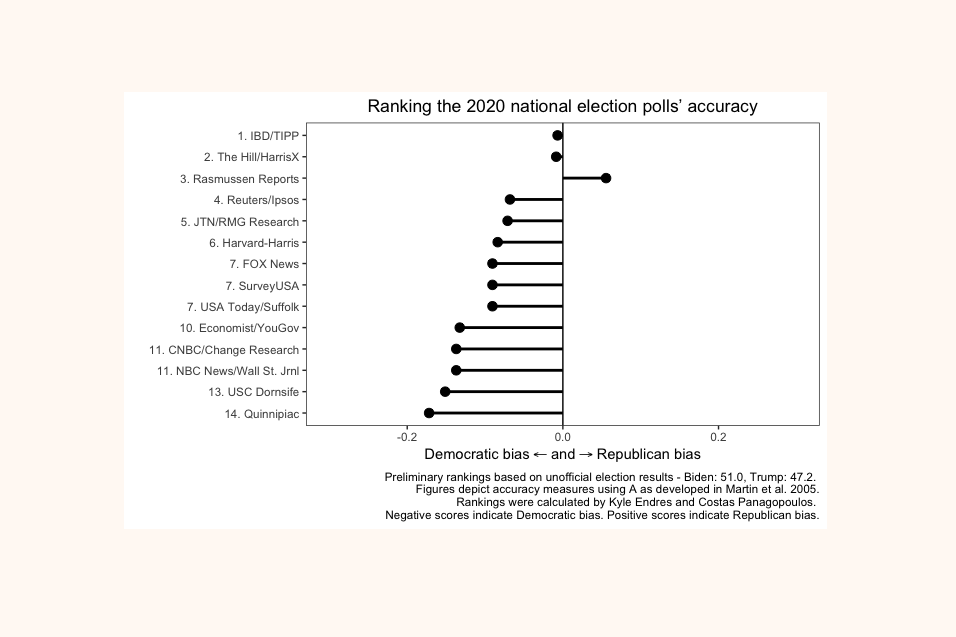
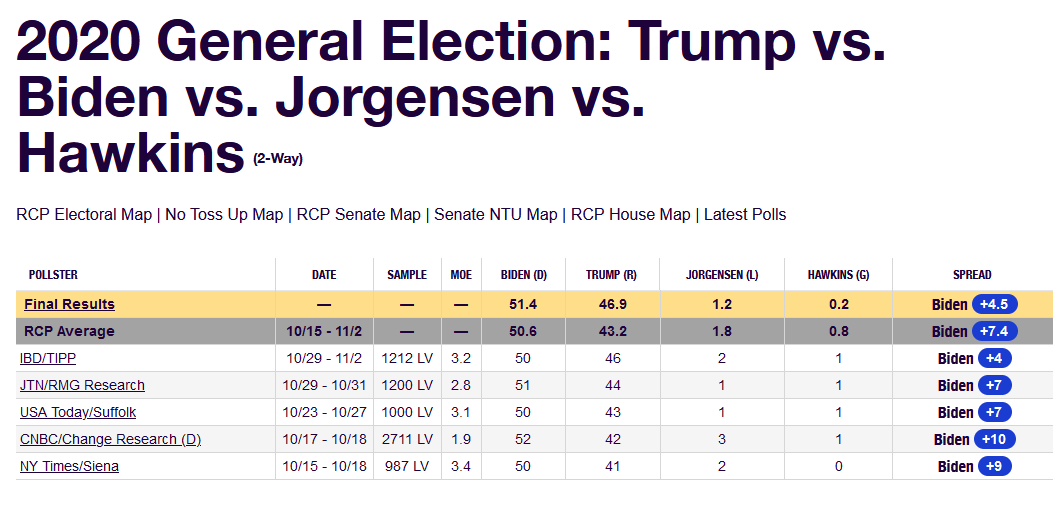
Our 2016 Performance - Unafraid, Correct Trump Call Among 11 Pollsters
"The gold standard going forward." — The Hill
"IBD/TIPP tracking poll was the only major national poll in November to give Trump the lead in a race including third-party candidates." — USA Today
"Investor's Business Daily was the best poll." — Bill O'Reilly, The O'Reilly Factor
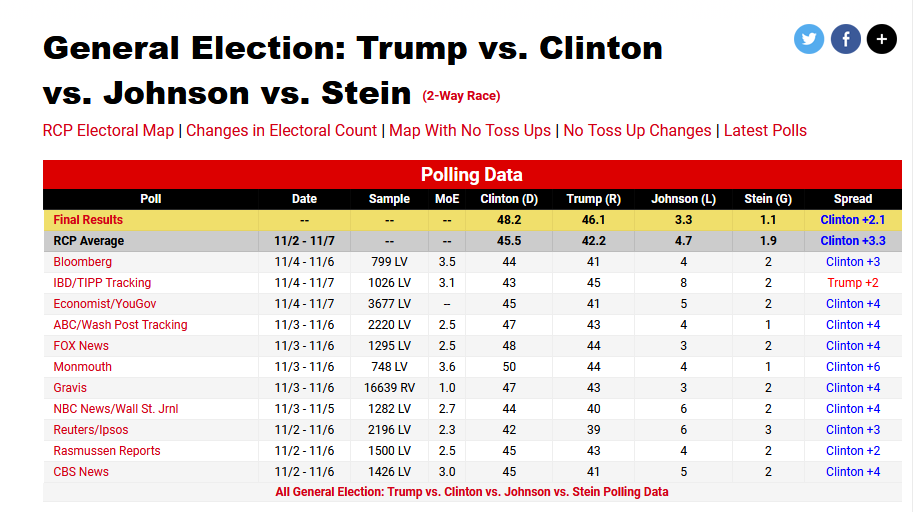
Our 2012 Performance As Rated By The New York Times
